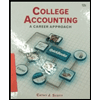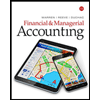
Concept explainers
Comprehensive Problem 2:
Accounting Cycle with Subsidiary Ledgers, Part 2
During the month of January 20-2, TJ’s Specialty Shop engaged in the following transactions:
Jan. 1 Sold merchandise on account to Anne Clark, $3,000, plus tax of $150. Sale No. 643.
2 Issued Check No. 818 to Nathen Co. in payment of January 1 balance of $800, less 2% discount.
Jan. 3 Purchased merchandise on account from West Wholesalers, $1,500. Invoice No. 678, dated January 3, terms 2/15, n/30.
4 Purchased merchandise on account from Owen Enterprises, $2,000. Invoice No. 767, dated January 4, terms 2/10, n/30.
4 Issued Check No. 819 in payment of phone expense for the month of January, $180.
8 Sold merchandise for cash, $3,600, plus tax of $180.
9 Received payment from Lucy Greene in full settlement of account, $1,491.
10 Issued Check No. 820 to West Wholesalers in payment of January 1 balance of $1,200.
12 Sold merchandise on account to Martha Boyle, $1,000, plus tax of $50. Sale No. 644.
12 Received payment from Anne Clark on account, $2,100.
12 Issued Check No. 821 in payment of wages (Wages Expense) for the two-week period ending January 11, $1,100.
13 Issued Check No. 822 to Owen Enterprises in payment of January 4 purchase. Invoice No. 767, less 2% discount.
13 Martha Boyle returned merchandise for a credit, $800, plus sales tax of $40.
17 Returned merchandise to Evans Essentials for credit, $300.
22 Received payment from John Dempsey on account, $2,121.
26 Issued Check No. 823 in payment of wages (Wages Expense) for the two-week period ending January 25, $1,100.
27 Issued Check No. 824 to KC Power & Light (Utilities Expense) for the month of January, $630.
27 Sold merchandise on account to John Dempsey, $2,000, plus tax of $100. Sale No. 645.
Late in January, TJ’s agreed to sell the business to a competitor. To agree on a selling price, financial statements are needed as of January 31 and for the month of January 20-2. To prepare these financial statements, TJ’s must perform the same procedures it normally does at year-end.
At the end of January, the following adjustments (a)–(j) need to be made:
(a, b) Merchandise inventory as of January 31, $19,000.
(c, d, e) Jones estimates that customers will be granted $500 in refunds of this month’s sales in subsequent months, and the merchandise expected to be returned will have a cost of $360.
(f) Unused supplies on hand, $115.
(g) Unexpired insurance on January 31, $968.
(h)
(i) Depreciation expense on the store equipment for the month, $38.
(j) Wages earned but not paid as of January 31, $330.
2. Enter transactions for the month of January in the general journal. Post immediately to the
Trending nowThis is a popular solution!

Chapter 15 Solutions
College accounting, chapters 1-9
- Century 21 Accounting Multicolumn JournalAccountingISBN:9781337679503Author:GilbertsonPublisher:Cengage
 College Accounting, Chapters 1-27AccountingISBN:9781337794756Author:HEINTZ, James A.Publisher:Cengage Learning,
College Accounting, Chapters 1-27AccountingISBN:9781337794756Author:HEINTZ, James A.Publisher:Cengage Learning,  College Accounting (Book Only): A Career ApproachAccountingISBN:9781305084087Author:Cathy J. ScottPublisher:Cengage Learning
College Accounting (Book Only): A Career ApproachAccountingISBN:9781305084087Author:Cathy J. ScottPublisher:Cengage Learning College Accounting (Book Only): A Career ApproachAccountingISBN:9781337280570Author:Scott, Cathy J.Publisher:South-Western College Pub
College Accounting (Book Only): A Career ApproachAccountingISBN:9781337280570Author:Scott, Cathy J.Publisher:South-Western College Pub Financial & Managerial AccountingAccountingISBN:9781337119207Author:Carl Warren, James M. Reeve, Jonathan DuchacPublisher:Cengage Learning
Financial & Managerial AccountingAccountingISBN:9781337119207Author:Carl Warren, James M. Reeve, Jonathan DuchacPublisher:Cengage Learning





